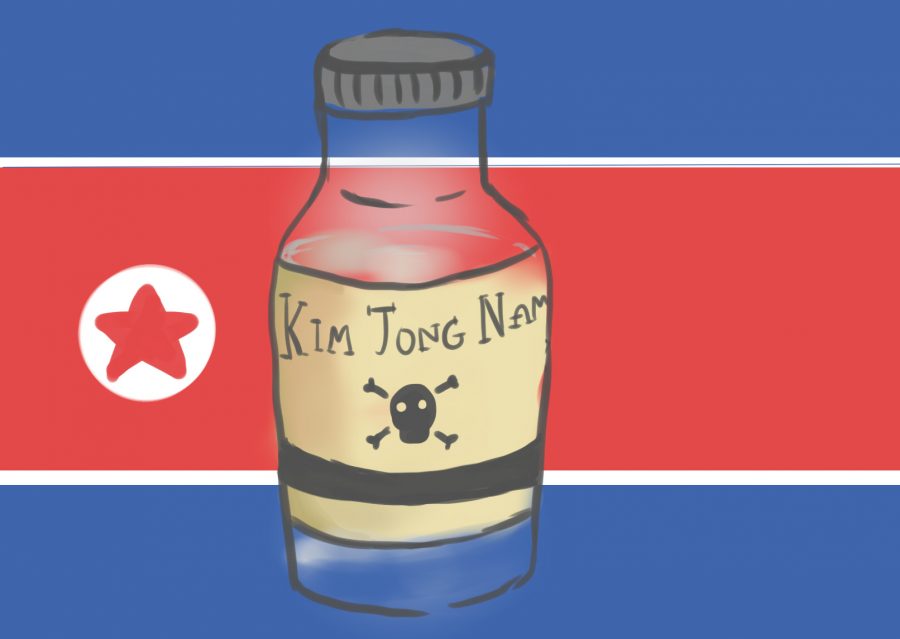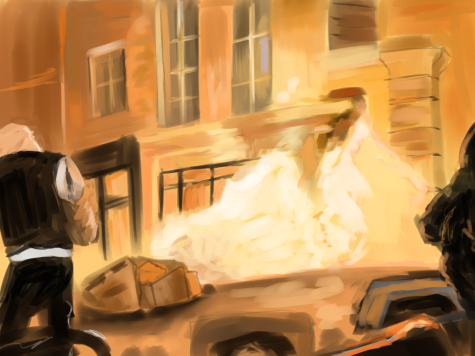The Kim Family Faces Another (Ordered?) Death
April 7, 2017
On February 14, 2017, the Kuala Lumpur International Airport in Malaysia was busy as usual with people from all around the world shuttling between its terminals. In the midst of this traffic flow, two women made their way towards a portly man waiting on a couch. Upon approaching the man, one woman pulled the traveler back and the other woman took a small cloth and rubbed it on his face. The two women then left in a hurry and blended back into the crowd. As the man reported the incident, he complained of sudden dizziness and blurred vision. He was rushed into an ambulance but died on the way to the hospital.
The next day, news sources revealed that the man who died had used a fake passport under the name of Kim Chol to travel to Macau. The man’s real identity was Kim Jong Nam, half-brother to North Korea’s Supreme Leader, Kim Jong Un.
Officials believe that North Korea is responsible for the assassination of Kim Jong Nam, but the North Korean government denies these accusations. Though eight people have been named in connection with the murder, only two have been arrested thus far. Investigators have also tried to contact a North Korean diplomat and airline staff member, but the North Korean embassy has not honored these requests.
Officials later discovered that the toxin used to kill Kim Jong Nam was VX, a chemical that the U.N. recognizes as a weapon of mass destruction. As one of the only countries that refused to sign 1990 Chemical Weapons Accord, North Korea is an even more plausible suspect behind the recent assassination.
Many theories exist regarding why an assassination of Kim Jong Nam would prove advantageous to North Korea. Nam was recently asked by some North Korean defectors to lead a government-in-exile, and although he declined, they reportedly planned to ask again later. Additionally, Chinese leaders, who had been in contact with Kim Jong Nam, could potentially place him as a future political puppet in North Korea due to his pure “Baekdu” bloodline. Furthermore, some evidence points to Kim Jong Un’s diminishing clout, which demands that any possible rivalry be removed. Thus, to maintain the current regime’s power in North Korea, Kim Jong Nam had to be eliminated.
Regardless of the motives behind the assassination, the incident indubitably creates more problems between China and North Korea. Though China and North Korea are friendly, the Chinese government cannot defend the assassination. As such, China, which accounts for 90% of North Korea’s trade, announced that it is suspending coal imports from North Korea for the rest of the year, hurting the North Korean economy.
North Korea’s actions are becoming increasingly inflammatory, especially since the country has recently begun nuclear testing again. Megan Rush ‘19 states, “The isolation and uncertainty in North Korea’s test of nuclear weapons have caused everlasting conflict and political tensions to escalate between North Korea and the countries associated with the United Nations.”
The recent assassination is not an isolated event, either. In 2013, Kim Jong Un mercilessly executed his uncle Jang Song Thaek. Just two weeks before this incident, Kim Won Hong, the head of state security, mysteriously disappeared.
After hearing this, Will Chiang ‘20 muses, “Kim Jong Un’s paranoid actions exhibit his cruel, self-centered, unmerciful soul in stark contrast to the godly stature that the North Koreans have been brainwashed to view him as… He is unfit in fulfilling the role as the leader of his country and upholding the standards of his grandfather that the North Koreans regard so highly of. [He has] no respect for his family, no respect for his people, and no respect for his country.”
After this assassination, the world can see that Kim Jong Un truly has no boundaries in terms of what he would do to secure his power. As Supreme Leader, he holds unchecked control of his country and can do as he pleases with little to no consequences. In fact, Kim Jong Un will probably continue to make rash, self-servient decisions until the end of his regime.



